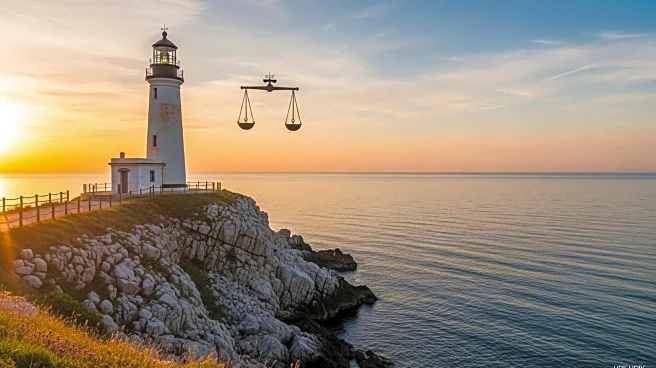What is the story about?
What's Happening?
A court in Trapani, Italy has ruled in favor of a migrant rescue NGO, lifting a detention order on a rescue ship that had defied Italian government instructions to divert to a distant port. The ruling criticized Italy's interior ministry for imposing excessive penalties and praised the humanitarian objectives of the vessel's operators. The case centers around the 'Piantedosi Decree,' which mandates rescue ships to head to port immediately after each rescue, potentially bypassing other people in distress. The NGO Mediterranea had docked in Trapani, Sicily, after rescuing migrants off Libya, defying orders to call at Genoa, which was significantly further away. The court's decision supports the NGO's stance on prioritizing human dignity and life over bureaucratic directives.
Why It's Important?
This ruling is significant as it challenges the stringent regulations imposed by the Italian government on migrant rescue operations in the Mediterranean. It underscores the tension between humanitarian efforts and governmental policies aimed at controlling migration. The decision may embolden other NGOs to prioritize immediate rescue operations over compliance with potentially harmful bureaucratic mandates. It also highlights the ongoing debate over the balance between national security concerns and humanitarian obligations, potentially influencing future policy discussions and legal interpretations in Italy and the broader European context.
What's Next?
The court case is ongoing, and Mediterranea is expected to resume its rescue operations soon. The ruling may prompt further legal challenges against the 'Piantedosi Decree' and similar regulations. It could also lead to increased scrutiny of Italy's migration policies by international human rights organizations. The Italian government may face pressure to amend its approach to migrant rescues, balancing its regulatory objectives with humanitarian considerations. Stakeholders, including other NGOs and European policymakers, will likely monitor the situation closely, potentially influencing broader migration policy across the EU.
Beyond the Headlines
The case highlights ethical considerations in migration policy, particularly the prioritization of human life and dignity over administrative directives. It raises questions about the legal responsibilities of states versus humanitarian organizations in crisis situations. The ruling may influence cultural perceptions of migration and humanitarian aid, potentially fostering greater public support for NGOs operating in challenging environments. Long-term, this could lead to shifts in legal frameworks governing international rescue operations and the treatment of migrants.















